
SPC Flooring Wholesale: Durable Composite Click & Stone Core
The Ascendance of SPC Flooring in Wholesale Markets: A Comprehensive Analysis
The global flooring industry is currently experiencing a profound transformation, driven by advancements in material science and an increasing demand for sustainable, high-performance solutions. At the forefront of this revolution is Stone Plastic Composite (SPC) flooring, a product engineered to meet the rigorous demands of both residential and commercial environments. When considering spc flooring wholesale, it's imperative to understand the intricate interplay of market dynamics, technological innovations, and strategic sourcing that define this burgeoning sector. SPC flooring, often referred to as rigid core luxury vinyl flooring, distinguishes itself with a remarkably dense and stable core, primarily composed of limestone powder and PVC stabilizers. This unique composition endows it with exceptional resistance to impacts, indentations, and significant temperature fluctuations, characteristics that are paramount for long-term durability in diverse climates and high-traffic areas. The wholesale market for SPC flooring is not merely about bulk purchasing; it's about establishing robust supply chains that deliver consistent quality, competitive pricing, and logistical efficiency. Industry trends indicate a consistent upward trajectory for rigid core products, fueled by their superior water resistance compared to traditional laminates, their ease of installation via click-lock systems, and their suitability for radiant heating systems. Furthermore, the aesthetic versatility of SPC, capable of replicating the authentic look and feel of natural wood, stone, or tile without their inherent maintenance challenges, makes it an increasingly attractive option for developers, contractors, and large-scale distributors seeking reliable and visually appealing flooring solutions. The shift towards sustainable building materials also bolsters the case for SPC, as many products are manufactured with recycled content and are free from harmful phthalates and formaldehyde, aligning with stringent environmental certifications. Navigating the complexities of the wholesale spc flooring market requires a deep understanding of product specifications, quality assurance protocols, and the capacity for large-volume production, ensuring that supply meets the escalating demand while maintaining cost-effectiveness. This comprehensive guide will delve into the technical intricacies, application benefits, and strategic considerations for engaging with the composite core click flooring segment at a wholesale level, providing invaluable insights for B2B decision-makers aiming to optimize their material procurement and project execution.
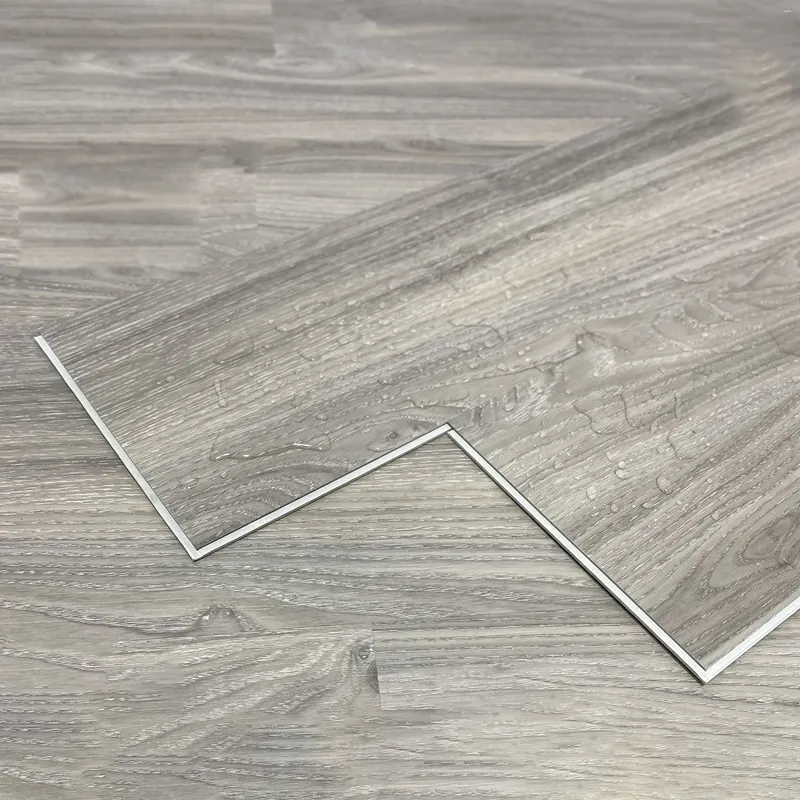
The Engineered Precision Behind SPC Flooring: A Detailed Manufacturing Process
The robust performance and aesthetic appeal of spc flooring wholesale products are a direct result of their sophisticated, multi-layered manufacturing process, which ensures unparalleled stability and durability. Unlike traditional laminates or even earlier generations of vinyl flooring, SPC’s unique construction begins with its core. The rigid core layer, the very heart of the product, is primarily composed of natural limestone powder (approximately 60-80%), polyvinyl chloride (PVC) resin, and stabilizers. These components are thoroughly mixed and then extruded at high temperatures to form a dense, homogeneous sheet. This extrusion process is critical; it creates a core that is exceptionally stable, preventing expansion or contraction even in environments with significant temperature fluctuations or high humidity. Following the core extrusion, a series of subsequent layers are applied with extreme precision. First, a high-definition decorative film layer is meticulously adhered to the rigid core. This film is responsible for the authentic visual appeal, replicating a vast array of natural materials such as wood grains, stone textures, or ceramic tile patterns with photorealistic clarity. The quality of this print layer significantly influences the market appeal of wholesale spc flooring. Above the decorative film, a wear layer is applied, which is a transparent, highly resilient PVC coating. This layer is the primary defense against daily wear and tear, including scratches, scuffs, and abrasions. Its thickness is a critical factor determining the product's durability and suitability for various traffic levels, typically ranging from 0.3mm to 0.7mm (12 to 28 mil). Finally, a UV-cured coating is applied on top of the wear layer. This specialized coating enhances scratch resistance, provides stain resistance, and protects the flooring from fading due to UV exposure, ensuring the vibrancy of the design over its extended lifespan. The bottom layer of composite core click flooring often features an attached underlayment, such as IXPE (Irradiation Cross-linked Polyethylene) or EVA (Ethylene-vinyl acetate) foam. This integrated underlayment offers several benefits: it improves acoustic performance by reducing sound transmission, provides a cushioned feel underfoot, and helps to smooth out minor subfloor imperfections, simplifying the installation process. The precise manufacturing process involves several stages, including raw material preparation, mixing, extrusion of the core, hot pressing (lamination) of the decorative film and wear layer, UV coating application, cooling, and finally, precise cutting and profiling. The profiling stage involves milling the edges of the planks or tiles to create the interlocking click-lock system, which facilitates glueless, floating installation, making spc flooring for sale an attractive option for rapid deployment in large commercial projects. Quality control is integrated throughout every stage, adhering to international standards such as ISO 9001 for quality management and ISO 14001 for environmental management. Rigorous testing is conducted for dimensional stability, peel strength, wear resistance, indentation resistance, and formaldehyde emissions, ensuring that the final product meets or exceeds industry benchmarks. This meticulous process ensures that the composite stone flooring delivered to clients is not only visually appealing but also structurally sound, offering a service life that can extend well beyond 25 years in residential settings and 10-15 years in commercial applications, depending on the wear layer thickness and traffic intensity.
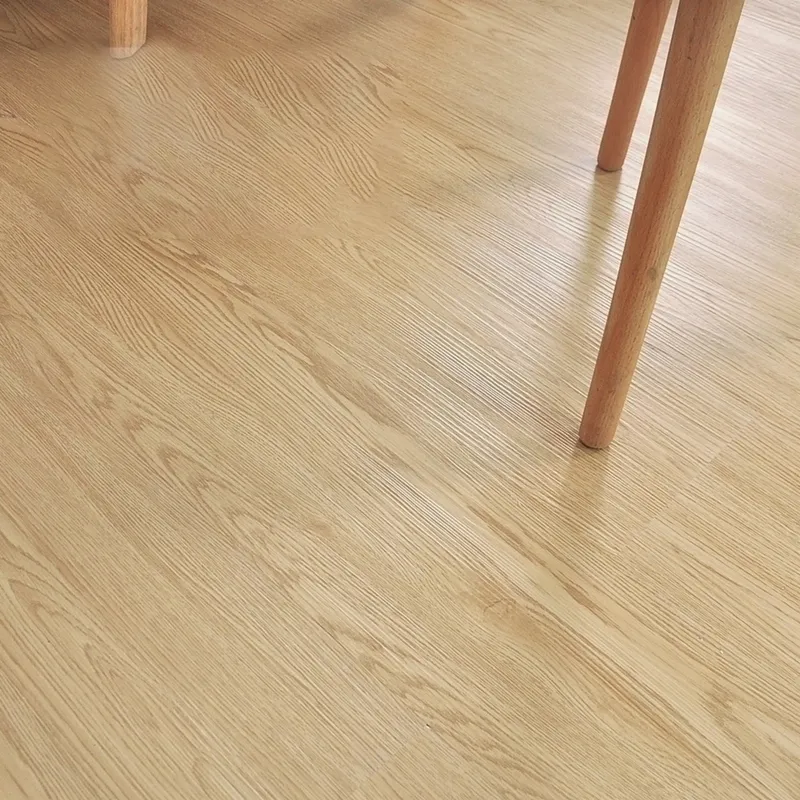
Key Technical Parameters and Performance Attributes of SPC Flooring
Understanding the technical parameters of spc flooring wholesale is crucial for B2B buyers to make informed procurement decisions, ensuring the product aligns perfectly with the specific demands of their projects. The performance of SPC flooring is quantifiable through several key specifications, each contributing to its overall durability, safety, and aesthetic longevity. Foremost among these is the overall thickness, which typically ranges from 3.5mm to 8mm. While greater thickness can contribute to a more substantial feel and better sound absorption, the true indicator of durability lies in the wear layer thickness, which commonly varies from 0.3mm (12 mil) for light commercial or residential use to 0.7mm (28 mil) or even thicker for heavy commercial and industrial applications. This wear layer, composed of clear PVC, is the primary defense against surface damage, and its thickness directly correlates with the flooring's expected lifespan under traffic. Another critical parameter is the density of the SPC core, often expressed in kg/m³. A higher core density, typically ranging from 1900-2100 kg/m³, signifies a more rigid and stable product, offering superior resistance to indentation from heavy furniture or dropped objects. Dimensional stability, measured by changes in length and width under varying temperature and humidity conditions, is paramount for rigid core products. Reputable wholesale spc flooring adheres to standards like ASTM F3261 for dimensional stability, exhibiting minimal changes (e.g., less than 0.05% expansion or contraction) even when exposed to temperatures between 0°C to 50°C. Water resistance is a defining characteristic of SPC. Its 100% waterproof nature, attributed to the non-porous rigid core, means it will not swell, buckle, or warp when exposed to moisture, making it ideal for bathrooms, kitchens, basements, and commercial spaces prone to spills. Fire safety is another vital consideration; SPC flooring typically achieves high ratings, such as B1 or Bfl-s1, in European fire reaction tests, indicating excellent resistance to flame spread. Slip resistance, measured by static coefficient of friction (SCOF) or dynamic coefficient of friction (DCOF), ensures safety in public and private spaces, with standards often requiring values above 0.42. Acoustic performance, enhanced by the attached underlayment, is quantified by sound transmission class (STC) and impact insulation class (IIC) ratings, which denote the product's ability to reduce airborne and impact noise, respectively, a significant advantage in multi-story buildings and commercial environments. Environmental certifications such as FloorScore or Greenguard Gold attest to low VOC (Volatile Organic Compound) emissions, contributing to better indoor air quality, a non-negotiable factor for healthcare, education, and hospitality sectors. The click-lock system's integrity, often tested for locking strength and ease of assembly, ensures a robust, seamless, and glueless installation. Furthermore, parameters such as thermal conductivity are relevant for installations over radiant heating systems, where SPC's low thermal resistance allows for efficient heat transfer. When sourcing spc flooring for sale, attention to these detailed specifications, often presented in comprehensive data sheets, allows buyers to precisely match product performance to project requirements, guaranteeing optimal longevity and user satisfaction.
Key Technical Specifications for SPC Flooring Wholesale
| Parameter | Typical Range / Value | ASTM / ISO Standard | Significance for B2B Buyers |
|---|---|---|---|
| Overall Thickness | 3.5mm - 8.0mm | ASTM F3261 | Aids in subfloor leveling; contributes to sound absorption and feel. |
| Wear Layer Thickness | 0.3mm (12 mil) - 0.7mm (28 mil+) | EN 660-2 (Abrasion Resistance) | Primary determinant of durability and lifespan; critical for traffic class. |
| Core Density | ~1900-2100 kg/m³ | Internal Testing/Manufacturer Spec | Indicates rigidity and indentation resistance. |
| Dimensional Stability | < 0.05% (0°C to 50°C) | ASTM F3261 / ISO 23999 | Crucial for preventing expansion/contraction, ensuring long-term integrity. |
| Fire Rating | B1 / Bfl-s1 (Europe) | EN 13501-1 | Ensures safety compliance, especially in commercial and public buildings. |
| Slip Resistance | R9 - R10 (Germany); DCOF ≥ 0.42 | DIN 51130 / ASTM E303 | Ensures user safety, particularly in wet areas or high-traffic zones. |
| Acoustic Performance (IIC) | 50-60+ (with underlayment) | ASTM E492 / ISO 717-2 | Important for multi-story residential, commercial, and hospitality settings. |
| Residual Indentation | ≤ 0.15 mm | EN 433 | Measures resistance to permanent dents from static loads (e.g., furniture). |
| Formaldehyde Emission | E0 / CARB P2 compliant | EN 717-1 / ASTM D6007 | Crucial for indoor air quality and health; often required for green building certifications. |
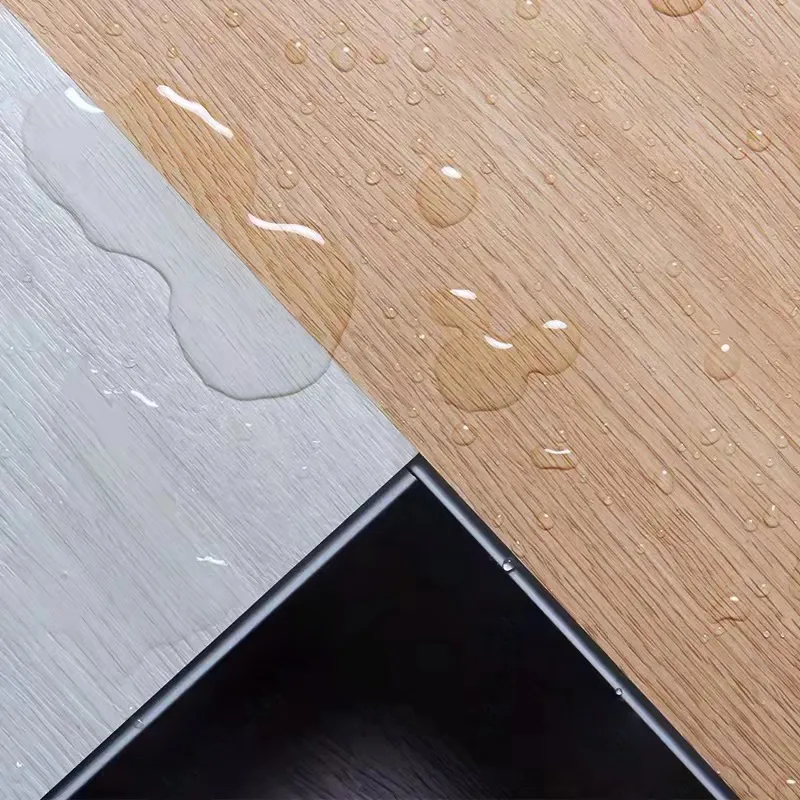
Versatile Applications and Industry-Specific Advantages of SPC Flooring
The inherent durability, water resistance, and aesthetic flexibility of spc flooring wholesale solutions make them exceptionally versatile for a vast array of application scenarios across various industries. From high-traffic commercial establishments to moisture-prone residential areas, SPC flooring consistently proves to be a superior choice, delivering both performance and visual appeal. In the retail sector, for instance, stores require flooring that can withstand constant foot traffic, resist spills from products or beverages, and maintain a pristine appearance to enhance the shopping experience. SPC's robust wear layer and waterproof core make it ideal for boutiques, supermarkets, and department stores, where its ease of maintenance (simple sweeping and mopping) significantly reduces operational costs compared to natural wood or carpet. The ability to replicate intricate patterns and luxurious textures allows retailers to create inviting and sophisticated environments that align with their brand identity. For the hospitality industry, including hotels, resorts, and restaurants, the demand for wholesale spc flooring is skyrocketing due to its sound-reducing properties, hygienic surface, and quick installation. In hotel rooms, corridors, and lobbies, SPC minimizes impact noise, contributing to guest comfort, while its waterproof nature provides peace of mind against spills and allows for thorough cleaning without damaging the subfloor. Its resistance to indentation from rolling luggage or heavy furniture ensures longevity, critical for maintaining high standards in guest-facing areas. The healthcare sector, encompassing hospitals, clinics, and assisted living facilities, prioritizes hygiene, ease of cleaning, and durability. SPC flooring, with its non-porous surface, resists bacterial growth and can be disinfected easily, fulfilling stringent sanitation requirements. Its impact resistance and ability to handle heavy rolling loads (like medical equipment trolleys) without damage ensure a long service life, while low VOC emissions contribute to healthier indoor air quality for patients and staff. Education facilities, such as schools and universities, benefit from spc flooring for sale due to its extreme durability against heavy foot traffic, resistance to spills and stains from art supplies or cafeteria food, and its quiet underfoot feel which minimizes classroom distractions. The quick installation process is also a significant advantage for renovation projects during limited academic breaks. In residential applications, especially multi-family dwellings, SPC is increasingly favored for kitchens, bathrooms, basements, and general living areas. Its waterproof core provides unparalleled protection against leaks and moisture damage, a common issue in these spaces. The click-lock system allows for DIY or rapid professional installation, reducing project timelines and labor costs. Furthermore, its compatibility with underfloor heating systems adds comfort and energy efficiency. Beyond these, industrial and light manufacturing facilities, offices, and even marine applications are exploring composite stone flooring due to its robust nature, chemical resistance, and ease of replacement if localized damage occurs. The anti-corrosion properties aren't explicitly SPC's primary feature, but its imperviousness to water and many common household/commercial chemicals makes it highly resistant to degradation from spills, contributing to its overall longevity in demanding environments. The low thermal resistance also allows for efficient use in spaces where temperature regulation is critical, potentially contributing to energy savings by maximizing the effectiveness of HVAC systems. The adaptability of SPC flooring across such diverse industries underscores its status as a leading-edge material solution for modern building and renovation projects, promising both functional excellence and enduring aesthetic value.
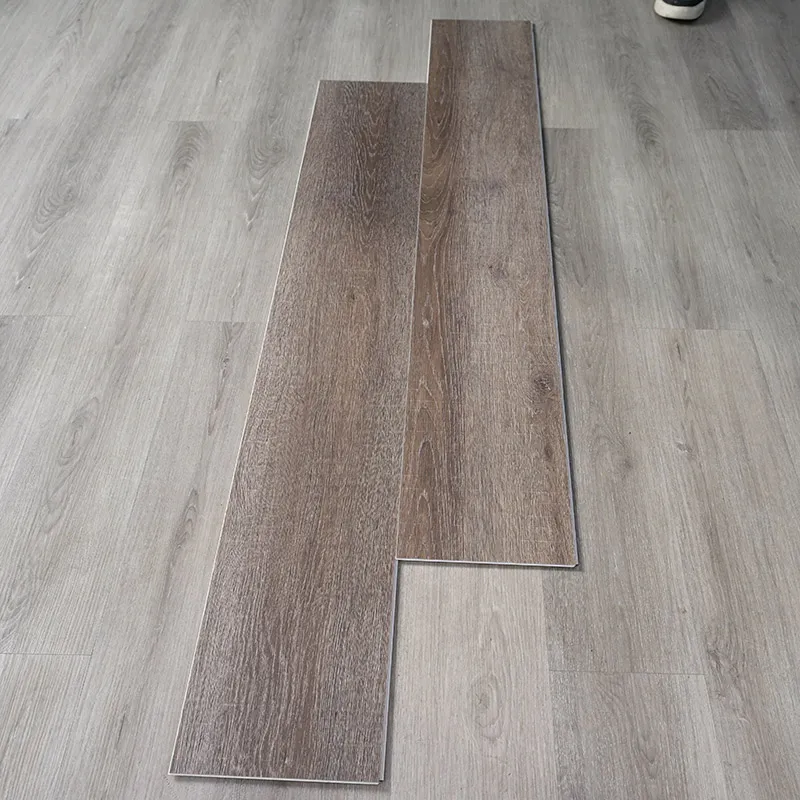
Strategic Sourcing: Manufacturer Comparison and Customization Solutions for SPC Flooring
For B2B buyers engaged in large-scale projects, strategic sourcing of spc flooring wholesale is a multifaceted process that extends beyond mere price comparison. It involves a thorough evaluation of manufacturers, their production capabilities, quality control protocols, and their capacity for offering tailored customization solutions. When comparing manufacturers, key differentiators emerge that significantly impact the value proposition. Firstly, a manufacturer's production capacity and lead times are paramount. A reputable supplier of wholesale spc flooring must demonstrate the ability to handle large volume orders consistently and meet agreed-upon delivery schedules, which is critical for maintaining project timelines and avoiding costly delays. This often involves assessing their factory infrastructure, machinery, and logistics network. Secondly, the consistency and stringency of quality control are non-negotiable. Leading manufacturers adhere to internationally recognized quality management systems like ISO 9001 and conduct rigorous in-house testing for every batch, covering parameters such as dimensional stability, wear resistance, indentation, and formaldehyde emissions. Buyers should request detailed test reports and certifications (e.g., FloorScore, CE, DIBt) as proof of compliance and superior product quality. Thirdly, material sourcing and composition are crucial. Inquire about the virgin PVC content versus recycled content, the origin of limestone powder, and the quality of decorative films and wear layers. Manufacturers using premium-grade raw materials generally produce a more stable and durable product, ensuring the long-term performance of the composite core click flooring. Beyond standard product lines, the ability to offer customization is a significant advantage for large-scale projects requiring unique aesthetics or specific performance attributes. Customization options for spc flooring for sale can include bespoke designs, where manufacturers can develop unique decorative films to match specific architectural styles or brand guidelines, allowing for truly distinctive project outcomes. This might involve custom color palettes, specific wood grain patterns, or stone textures that are not available in standard catalogs. Furthermore, custom wear layer thicknesses can be specified to meet precise traffic class requirements, ranging from ultra-light commercial to heavy industrial use, ensuring optimal cost-effectiveness and durability for the intended application. The integrated underlayment type and thickness (e.g., IXPE, EVA, cork) can also be customized to achieve desired acoustic performance levels, which is particularly relevant for multi-unit residential buildings or hospitality venues where sound insulation is critical. Manufacturers may also offer custom plank dimensions (width and length) to optimize installation efficiency or create unique visual effects, such as wider planks for a grander appearance or narrower planks for intricate herringbone patterns. Minimum Order Quantities (MOQs) for customization should be discussed upfront, as they can vary significantly between suppliers. Engaging with a manufacturer who possesses robust R&D capabilities and a collaborative approach to design ensures that specific project needs, no matter how unique, can be met with innovative and high-quality composite stone flooring solutions. A strong manufacturer relationship is built on transparent communication, reliable support, and a shared commitment to project success.
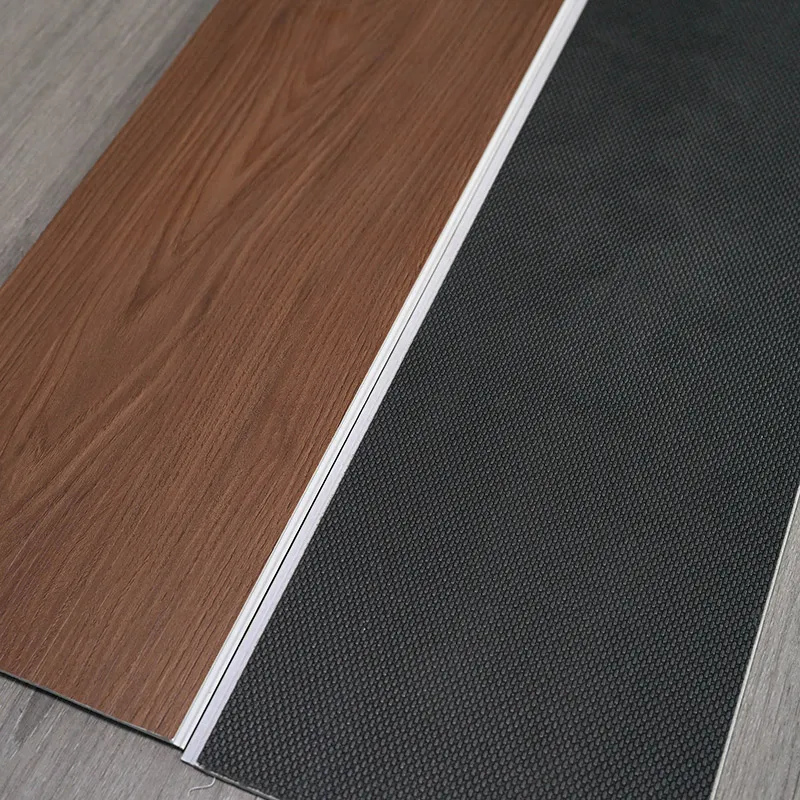
Ensuring Trust and Authority: Quality Assurance, Certifications, and Customer Support
In the competitive landscape of spc flooring wholesale, building and maintaining trust is paramount for B2B relationships. This trust is fundamentally rooted in a manufacturer's unwavering commitment to quality assurance, transparent certifications, and responsive customer support. For expertise, a reputable manufacturer will not only produce high-quality wholesale spc flooring but also provide comprehensive technical documentation, including detailed product specifications, installation guides, and maintenance recommendations. They demonstrate expertise by having experienced R&D teams constantly innovating and improving product formulations and manufacturing processes. Experience is reflected in a proven track record of successful project completions, evidenced by a portfolio of diverse installations across various sectors. For instance, a manufacturer might highlight case studies of supplying composite core click flooring for a chain of hotels, a large-scale residential development, or a demanding retail environment, showcasing their capacity to deliver on complex requirements. Direct customer feedback, testimonials, and long-standing client relationships further validate their operational experience and reliability. Authority is established through adherence to rigorous international standards and obtaining relevant certifications. These include, but are not limited to, ISO 9001 (Quality Management System) and ISO 14001 (Environmental Management System), which demonstrate a commitment to consistent quality and environmental responsibility. Product-specific certifications like FloorScore, Greenguard Gold, or CE Mark (for European markets) provide independent verification of low VOC emissions and compliance with health, safety, and environmental protection standards. Furthermore, adherence to industry-specific testing protocols such as ASTM (American Society for Testing and Materials) standards for flooring materials (e.g., ASTM F1700 for solid vinyl floor tile, ASTM F3261 for rigid core luxury vinyl tile) provides authoritative benchmarks for performance. A transparent display of test data for wear resistance, dimensional stability, slip resistance, and fire rating, often provided by accredited third-party laboratories, significantly enhances a manufacturer's authority. Trustworthiness, the culmination of , is further cemented by robust customer support, clear warranty provisions, and efficient logistics. A reliable supplier offers comprehensive pre-sales consultation, assisting buyers in selecting the optimal spc flooring for sale solution for their specific project needs, providing samples, and offering technical advice. During the order fulfillment phase, clear communication regarding production status, packaging, and shipping details is essential. Post-sales support, including handling any potential claims or inquiries promptly and professionally, reinforces customer confidence. A standard warranty for composite stone flooring typically ranges from 25 years for residential use to 10-15 years for commercial applications, reflecting the manufacturer's confidence in their product's longevity. Detailed warranty terms, including coverage for manufacturing defects and specific use conditions, should be readily available. Delivery cycles are crucial for project planning; established manufacturers typically offer transparent lead times and can facilitate various shipping options (FOB, CIF) to optimize logistics for international buyers. This holistic approach, combining technical prowess, demonstrated experience, certified authority, and unwavering customer commitment, is what truly distinguishes a trusted partner in the spc flooring wholesale market.
Frequently Asked Questions (FAQs) and Logistics for SPC Flooring Wholesale
FAQs about SPC Flooring for Wholesale Buyers
-
Q1: What is the typical lead time for a large spc flooring wholesale order?
Lead times for wholesale spc flooring orders can vary based on volume, specific customization requirements, and current factory production schedules. Generally, for standard designs and substantial quantities (e.g., multiple container111s), the lead time can range from 25 to 45 days from the confirmation of the order and receipt of the deposit. For highly customized designs or very large, ongoing projects, it is essential to establish a detailed production and delivery schedule in close coordination with the manufacturer. Factors such as raw material availability, shipping logistics, and seasonal demand fluctuations can influence these timelines. Experienced suppliers will provide transparent lead time estimates and proactive communication throughout the order fulfillment process, enabling buyers to plan their project schedules effectively and minimize potential delays. It is always recommended to confirm current lead times at the time of inquiry, especially for time-sensitive projects, and to account for potential transit times depending on the shipping method and destination.
-
Q2: What kind of warranty can I expect for composite core click flooring?
Manufacturers of composite core click flooring typically offer comprehensive warranties reflecting their confidence in the product's durability and performance. For residential applications, a lifetime limited structural warranty is common, covering manufacturing defects and ensuring the floor remains structurally sound under normal residential use. For commercial applications, warranties usually range from 10 to 15 years, depending on the wear layer thickness and the intensity of expected traffic. These warranties typically cover issues such as delamination, structural integrity, and manufacturing defects. It is crucial for wholesale buyers to review the specific terms and conditions of the warranty provided by each manufacturer, including limitations, proper installation requirements, and maintenance guidelines, as adherence to these conditions is usually a prerequisite for warranty claims. Understanding these terms upfront helps in managing client expectations and ensuring long-term satisfaction for end-users of spc flooring for sale.
-
Q3: How does composite stone flooring compare in cost to other flooring types for bulk orders?
When evaluating spc flooring wholesale costs, it’s essential to consider the total cost of ownership rather than just the initial purchase price. While the upfront cost of SPC flooring can be slightly higher than traditional vinyl or some laminates, its long-term economic benefits are substantial. SPC offers superior durability, requiring less frequent replacement and reducing material and labor costs over time. Its 100% waterproof nature eliminates the risk of moisture damage, which can be a significant cost factor for other flooring types, especially in moisture-prone areas. The click-lock installation system significantly reduces labor costs and installation time compared to glue-down options or ceramic tiles that require grout. Furthermore, the low maintenance requirements of SPC flooring (no waxing, polishing, or special chemicals needed) contribute to lower ongoing operational expenses. For bulk orders, economies of scale apply, allowing manufacturers to offer more competitive per-unit pricing. When compared to engineered wood or natural stone, wholesale spc flooring typically offers a significantly lower overall cost while providing comparable aesthetics and superior performance in many practical aspects. This makes it a highly cost-effective solution for large commercial and residential projects seeking a balance of aesthetics, durability, and budget efficiency.
-
Q4: What are the typical packaging and shipping options for spc flooring for sale?
For spc flooring wholesale shipments, efficient and secure packaging is crucial to prevent damage during transit. SPC planks or tiles are typically packaged in sturdy cardboard cartons, with each carton clearly marked with product specifications, quantity, and handling instructions. These cartons are then stacked on wooden pallets, often shrink-wrapped and banded for added stability during shipping. Standard container111 sizes, such as 20-foot (20GP) and 40-foot (40HQ) container111s, are commonly used for international bulk shipments. A 20GP container111 can typically hold approximately 2500-3000 square meters of SPC flooring, while a 40HQ container111 can hold around 5000-6000 square meters, though exact quantities depend on product thickness and packaging. Shipping terms commonly offered include FOB (Free On Board), where the buyer assumes responsibility once the goods are loaded onto the vessel at the port of origin, and CIF (Cost, Insurance, and Freight), where the seller covers costs and insurance until the goods reach the destination port. Buyers should discuss their preferred shipping terms and logistics requirements with the manufacturer, who can often assist in arranging freight forwarding and provide necessary customs documentation. Proper planning of logistics, including port selection and inland transportation, is vital for timely and cost-effective delivery of composite stone flooring to the final project site.
The Future Outlook for SPC Flooring Wholesale and Industry Insights
The trajectory of the spc flooring wholesale market is undeniably upward, propelled by its intrinsic advantages and evolving global demands. As urbanization continues and sustainable building practices become more ingrained in construction, the demand for high-performance, eco-friendly, and cost-effective flooring solutions like SPC will only intensify. Industry analysts project sustained growth in the rigid core flooring segment, with innovations continually enhancing product attributes and expanding application possibilities. Future trends for wholesale spc flooring include advancements in digital printing technology, allowing for even more realistic and diverse aesthetic options, mimicking not just wood and stone but also abstract designs, fabrics, or even custom brand patterns. The integration of smart technologies, such as embedded sensors for monitoring floor health or even energy harvesting capabilities, while currently nascent, represents a long-term potential for advanced flooring systems. Furthermore, research into more environmentally friendly core materials and adhesive-free production methods will continue to drive the sustainability aspect of SPC flooring, aligning with global green building initiatives and stringent environmental regulations. The increasing emphasis on indoor air quality will also cement SPC's position as a preferred choice, given its consistent low VOC emissions and compliance with certifications like FloorScore. For B2B stakeholders, staying abreast of these emerging trends and technological improvements is vital for maintaining a competitive edge and meeting the evolving demands of their clients. Engaging with manufacturers who actively invest in R&D ensures access to cutting-edge products that offer superior performance and unique selling propositions. The market for spc flooring for sale is also seeing a rise in specialized sub-segments, such as those designed for extreme temperature fluctuations, enhanced acoustic properties for specific commercial environments, or improved slip resistance for areas prone to moisture. The global supply chain for flooring materials is also becoming more resilient, with manufacturers diversifying production locations and optimizing logistics to reduce lead times and improve delivery reliability. This resilience is critical for composite core click flooring distributors and contractors who rely on timely and consistent supply for their large-scale projects. Ultimately, the composite stone flooring market is poised for significant expansion, driven by its unparalleled blend of durability, water resistance, aesthetic versatility, ease of installation, and environmental responsibility, making it a cornerstone material for modern construction and renovation projects worldwide.
References and Further Reading:
- World Market for Resilient Flooring (2023 Update) - Report by Ceresana. While specific data is proprietary, industry reports like this regularly highlight SPC's growth trajectory. [Access Ceresana Research]
- ASTM International Standards for Resilient Flooring - A comprehensive resource for technical specifications and testing methods relevant to SPC flooring. [Explore ASTM F-series Standards]
- Floor Covering News - Industry Trends - A leading trade publication offering insights into market developments and product innovations in flooring. [Visit Floor Covering News]
- European Standards for Resilient, Textile and Laminate Floor Coverings - CEN/TC 134 provides a framework for European standards, including those for SPC. [CEN/TC 134 Overview]
-
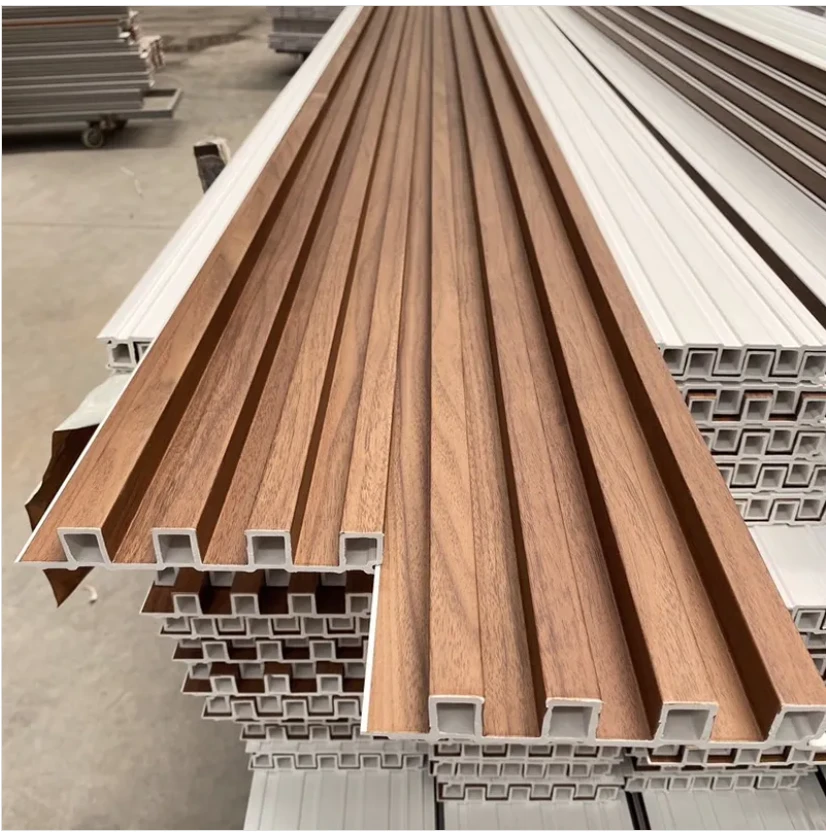 WPC Wall Panel Outdoor Weather ResistanceModern exterior design solutions increasingly utilize WPC exterior wall cladding for its exceptional durability and aesthetic appeal.Read More >
WPC Wall Panel Outdoor Weather ResistanceModern exterior design solutions increasingly utilize WPC exterior wall cladding for its exceptional durability and aesthetic appeal.Read More >Aug 05 2025
-
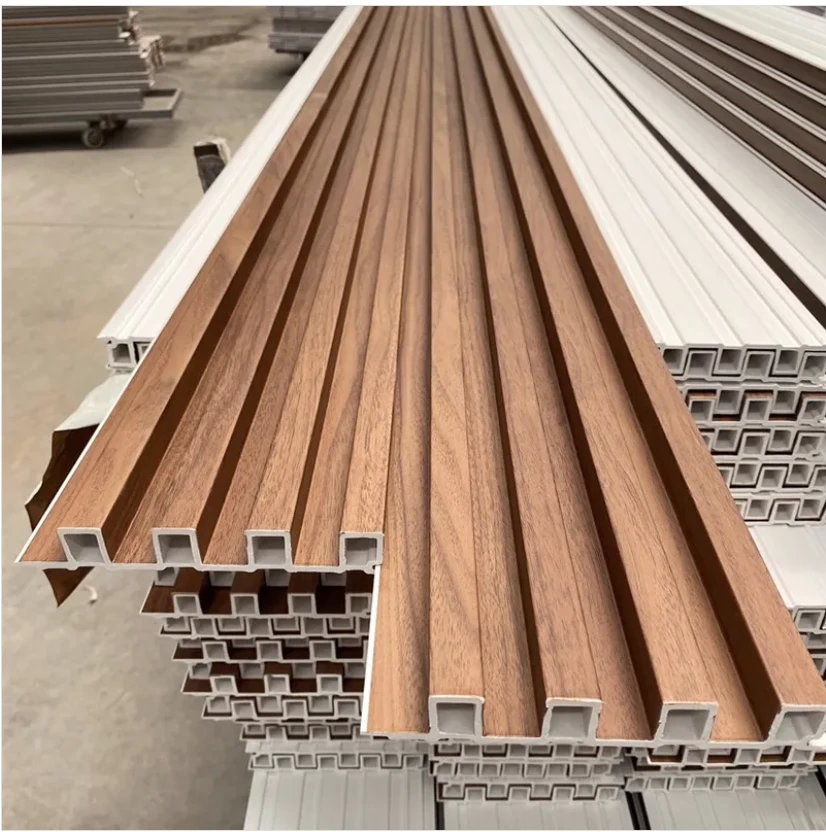 WPC Wall Panel for Wine CellarsThe ideal wine cellar requires specialized wall solutions that perfectly balance functionality and aesthetics.Read More >
WPC Wall Panel for Wine CellarsThe ideal wine cellar requires specialized wall solutions that perfectly balance functionality and aesthetics.Read More >Aug 05 2025
-
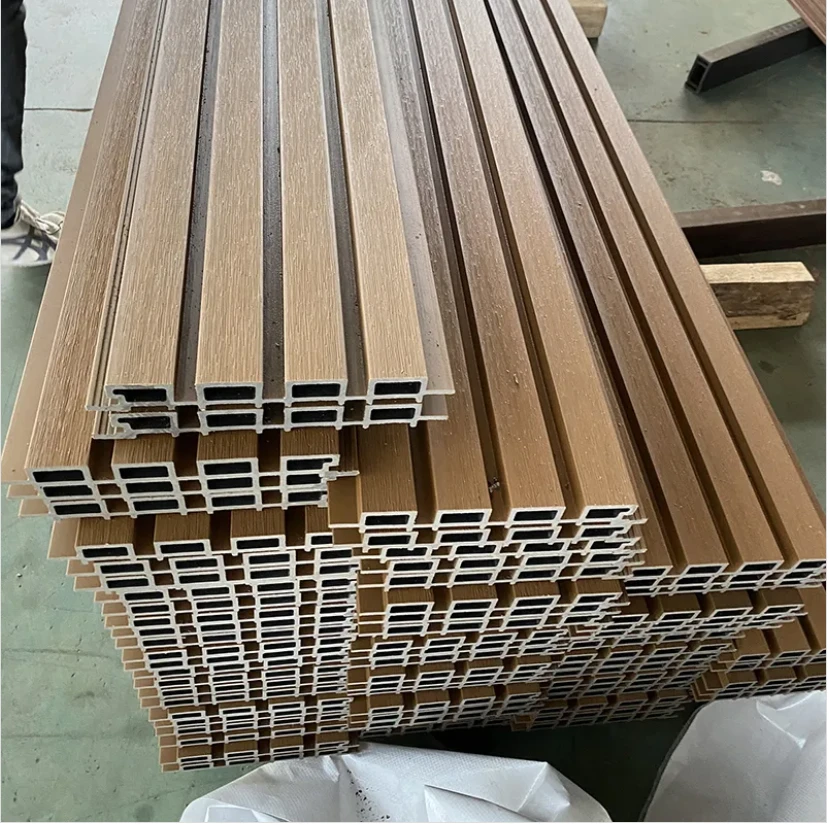 WPC Wall Panel Expansion GapsProfessional installation of WPC wall cladding requires meticulous attention to expansion gap requirements to ensure long-term durability and aesthetic performance.Read More >
WPC Wall Panel Expansion GapsProfessional installation of WPC wall cladding requires meticulous attention to expansion gap requirements to ensure long-term durability and aesthetic performance.Read More >Aug 05 2025
-
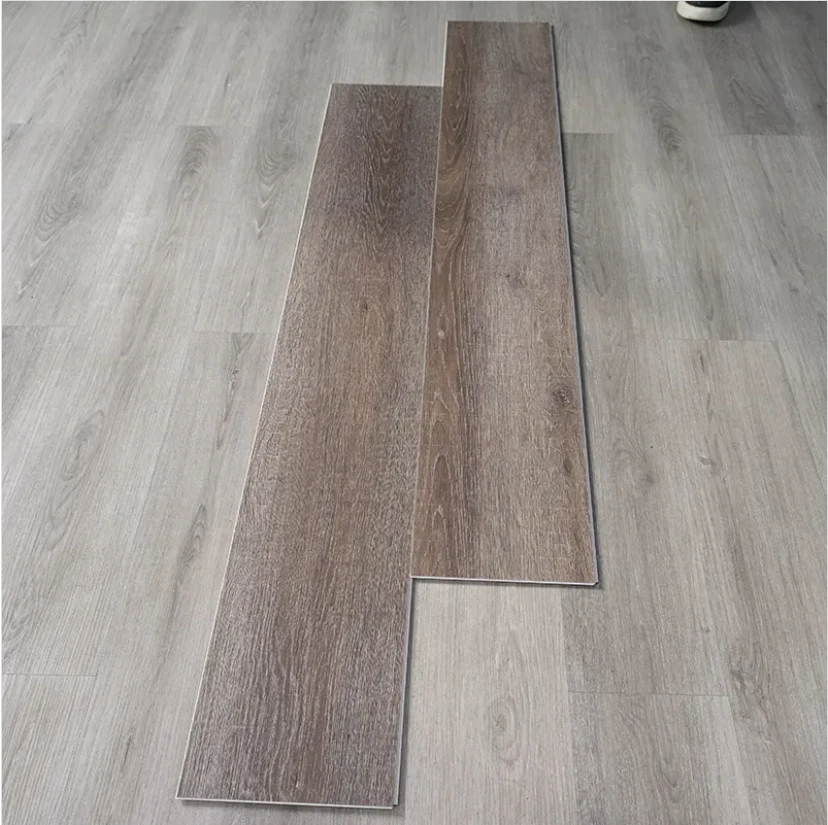 SPC Flooring Stone Look Outdoor UseOutdoor living spaces now benefit from durable and stylish SPC floor tiles that combine the beauty of natural stone with exceptional performance.Read More >
SPC Flooring Stone Look Outdoor UseOutdoor living spaces now benefit from durable and stylish SPC floor tiles that combine the beauty of natural stone with exceptional performance.Read More >Aug 05 2025
-
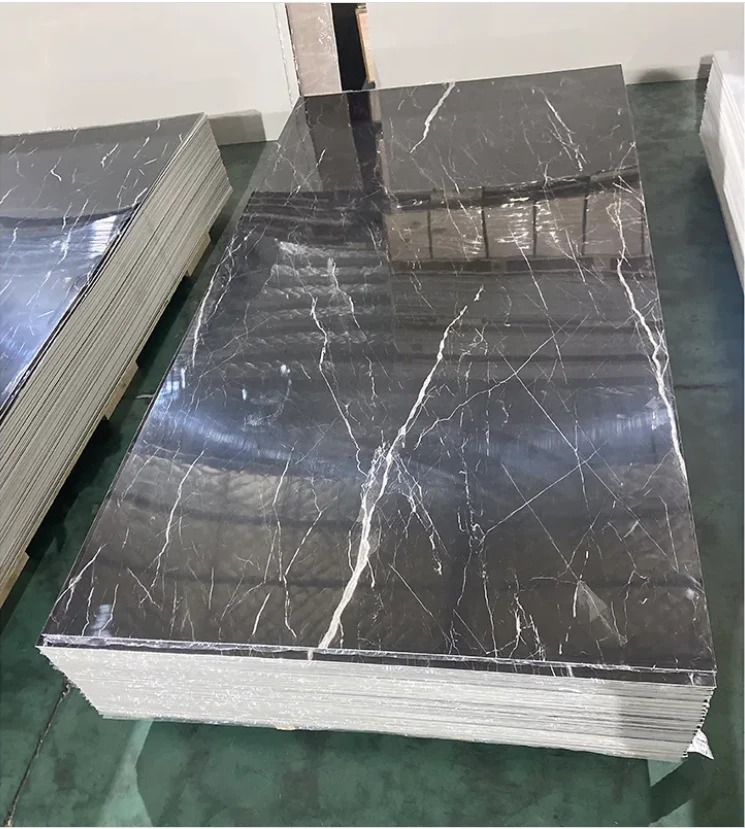 Marble Effect PVC Panels Color OptionsModern interior design increasingly utilizes marble effect PVC panels for their luxurious appearance and practical benefits.Read More >
Marble Effect PVC Panels Color OptionsModern interior design increasingly utilizes marble effect PVC panels for their luxurious appearance and practical benefits.Read More >Aug 05 2025




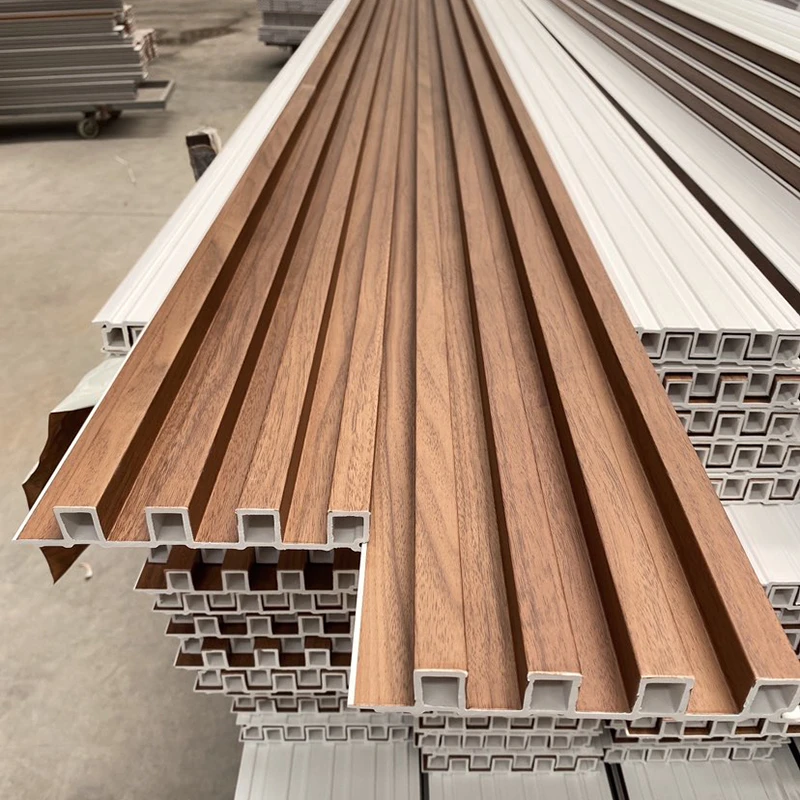
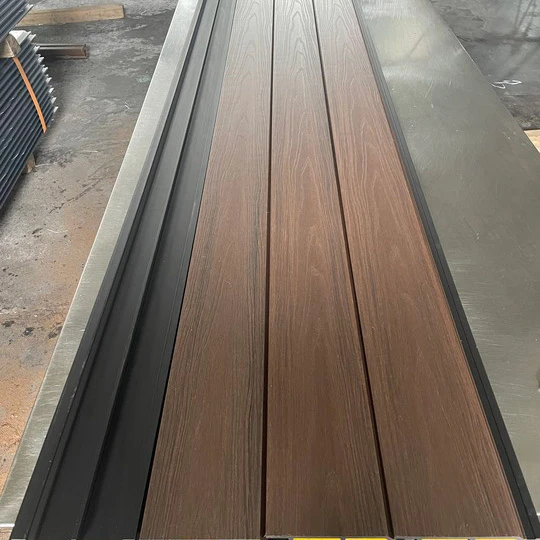
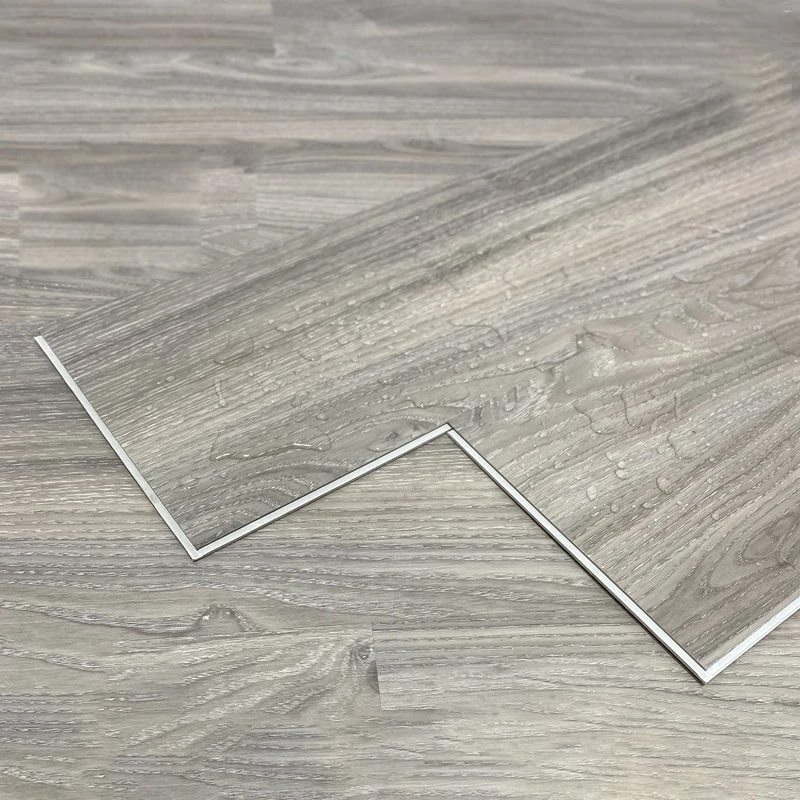
 +86 31185293045
+86 31185293045  qian@ss711.com
qian@ss711.com 















